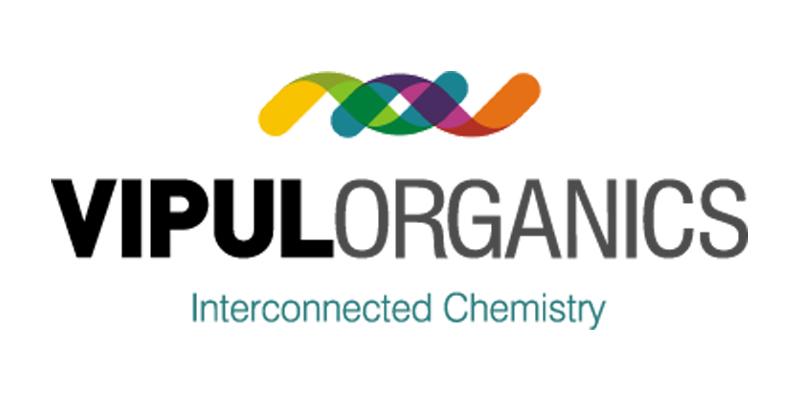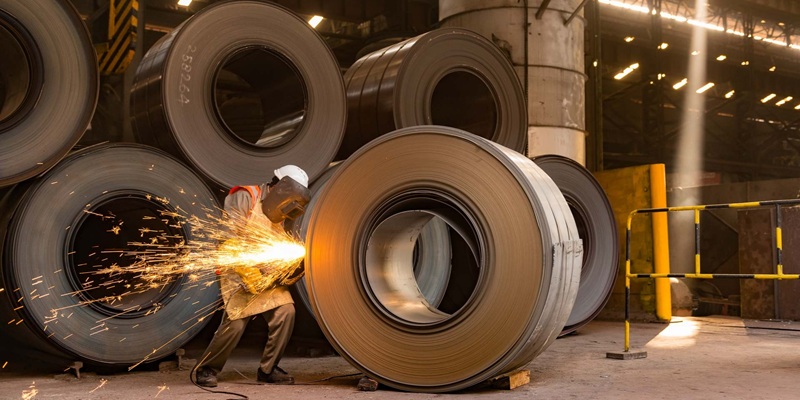Schedule a Call Back
IIF: Casting for growth
 Technical Articles
Technical Articles- Jun 09,16
 The Institute of Indian Foundrymen is geared to support the Make in India initiative by striving to make the Indian foundry industry competitive globally.
The Institute of Indian Foundrymen is geared to support the Make in India initiative by striving to make the Indian foundry industry competitive globally.
The automotive industry is a major consumer of castings in India. More than a third of the castings produced in the country are consumed by the automobile sector. Metal casting is the science of giving intricate shapes to molten metal by solidification of molten metal in the moulds to produce cast metal components of the desired shapes and metallurgy, having physical and chemical properties to match the wide range of applications which otherwise cannot be produced by any other manufacturing process. Apart from automobiles, castings are also used in other vital industry segments like railways, aerospace, appliances, pumps & valves, pipes & fittings, compressors, electrical machinery and power generation equipment, tractors & earth moving machinery, textile and cement industries, etc.
Speaking to Industrial Products Finder on the sidelines of the annual CEO meet of the Institute of Indian Foundrymen (IIF), the apex national industry body for the Indian foundry industry, Mr A K Anand, Director, maintained that the Indian foundry industry, which has current capacity of 10.02 million tonnes per annum (TPA) capacity presently needs to grow three-fold during the next 10 years producing 30 million TPA to support the domestic manufacturing industry, for replacement parts and export requirements. “These estimates are based on the assessment based on the expected rise in demand in light of by the Make in India initiative and various policy measures like improving the ‘ease of doing business’, infrastructure boost and easing of FDI norms in certain sectors taken by the government during the last two years,” he said. The automotive industry of course figures prominently in this projection. “According to the Automotive Mission Plan 2016-26, the Indian automotive industry is expected to grow 3.5 to 4 times of the current value of USD 74 billion to USD 260 billion to 300 billion, which signifies a similar rise in demand for castings. Besides, sectors like mining are growing too,” says Anand.
 Such growth also calls for massive investments in the region of USD 6-8 billion during these 10 years. When how the foundry industry is preparing to meet this challenge, Anand pointed out to various measures the industry is in the process of implementing with a few initiatives on the cards. The industry has been adding capacity and not all of this is utilised. “As and when demand starts increasing, the under-utilised capacity will first fill that gap,” he says. “Besides there are certain inefficiencies in the system relating to wastage of raw materials and a mismatch in terms of melting and moulding capacities and capabilities, which are being plugged. Another factor is the use of IT tools in design, like foundry simulation software that can boost productivity,” adds Anand.
Such growth also calls for massive investments in the region of USD 6-8 billion during these 10 years. When how the foundry industry is preparing to meet this challenge, Anand pointed out to various measures the industry is in the process of implementing with a few initiatives on the cards. The industry has been adding capacity and not all of this is utilised. “As and when demand starts increasing, the under-utilised capacity will first fill that gap,” he says. “Besides there are certain inefficiencies in the system relating to wastage of raw materials and a mismatch in terms of melting and moulding capacities and capabilities, which are being plugged. Another factor is the use of IT tools in design, like foundry simulation software that can boost productivity,” adds Anand.
Regarding the concerns of the Indian foundries vis-à-vis the unfair price advantage enjoyed by Chinese castings manufacturers, Mr Anand says that China has attracted massive foreign investment in this segment during the last couple of decades and build up huge capacities and the products are exported to India at artificially low prices. The IIF has taken up the issue with the government on a case-to-case basis. Early this year the government has imposed an anti-subsidy duty of 13.44% on castings made in China for wind energy generators, which is a victory for the Indian foundries. Similar cases are being brought up to the notice of the government.
There are approximately 5000 foundries in India, which are largely in the MSME sector, with a handful of major players, located in various foundry clusters. The average productivity per unit is 2173 TPA. Each cluster is known for a particular speciality in terms of the range of products manufactured. The major foundry clusters in India are located at Batala, Jalandhar and Ludhiana in Punjab; Rajkot and Ahmedabad in Gujarat; Faridabad and Gurgaon in Haryana; Howrah in West Bengal; Agra in UP; Pune, Kolhapur and Solapur in Maharashtra; Belgaum in Karnataka; Chennai and Coimbatore in Tamilnadu; and Hyderabad in Telengana. Some of these clusters have been formed under IIUS – Industrial Infrastructure Upgradation Scheme of the Union Ministry for Commerce & Industry.
 The IIF has also initiated steps to establish some common facilities in clusters for the benefit of the foundries, most of which are in the SME segment and hence cannot set these up individually. Such facilities include: common training facilities and testing labs – optical emission spectrometer and 3D CMM machine; common interactive portal and ERP software package for members; vendor/supplier development programme and collective procurement where possible; modern tool room; 3D modelling and ERP/CAD CAM solutions; rapid product development, etc. Other facilities include initiating measures to promote green and clean environment and sand reclamation and recycling. Shortage of sand due to banning of mining activity in several states is another vital issue affecting the industry.
The IIF has also initiated steps to establish some common facilities in clusters for the benefit of the foundries, most of which are in the SME segment and hence cannot set these up individually. Such facilities include: common training facilities and testing labs – optical emission spectrometer and 3D CMM machine; common interactive portal and ERP software package for members; vendor/supplier development programme and collective procurement where possible; modern tool room; 3D modelling and ERP/CAD CAM solutions; rapid product development, etc. Other facilities include initiating measures to promote green and clean environment and sand reclamation and recycling. Shortage of sand due to banning of mining activity in several states is another vital issue affecting the industry.
Skill development is yet another of IIF’s important initiatives. For an industry that employs 5000,000 persons directly and another 150,000 indirectly, there is a lack of systematic training programmes in this labour intensive industry that mainly depends on socially and economically weaker sections of the society for its labour requirements. There are very few Indian institutes provide specialised training in foundries and metal casting. The National Institute of Foundry and Forge Technology at Ranchi is a prominent one. In Coimbatore the PSG group offers training and skill development programmes for the foundry industry along with other industry segments. In Gujarat the Nirma University at Ahmedabad offers an advanced diploma in foundry technology. Another organised effort is at Kolhapur where the Maharashtra government has adopted a polytechnic that offers foundry related courses. Apart from this the IIF has initiated several training programmes for foundry workers on a pan India basis, taking training at the doorsteps of foundries, also arranging for instructions by trainers in local languages for better understanding. This initiative will cover 9 modules and 1000 workmen initially in 2106, and will be upscaled to include 5000 workmen by 2017.
Anand is upbeat on the future of the Indian foundries, which currently produce over 10 million TPA of cast components in ferrous and non ferrous category as per various international standards. It is about 10% of the global production by weight. The products range in size from a few grams to over 100 tonnes per piece for various applications. The Indian foundry industry has gradually risen from No. 5 to become the 3rd largest globally, having grown by over 43% since 2008. The country exports castings worth USD 2.2 billion annually and there is a huge potential to improve the market share in exports, which could grow three-fold. India also imports castings worth approx USD 900 million annually, and about a fourth of these come from China.
 In the crucible…
In the crucible…
The Institute of Indian Foundrymen (IIF), founded in 1950 and headquartered at Kolkata, has completed 66 glorious years in the service of Indian foundry industry, and is accredited BMO (Business Member Organisation) under Gold Category by NABET/QCI under the initiative of Ministry of MSME and GIZ, Germany. IIF is also active member of World Foundry Organisation, CII, EEPC, BRICS Foundry Forum, Asia Foundry Forum and represents the Indian foundry industry in various international events and forums. IIF is actively engaged in dissemination of knowledge and promotion of latest productive and greener technology, skill development, business and export promotion and policy advocacy for the foundry sector. IIF also maintains and updates periodically large database, publishes Indian Foundry Directory, technical publications on various topics of interest to foundry industry, promotes efficient energy and resource management, lean manufacturing techniques and for sustainable growth of the foundry sector in India.
The IIF has four Regional Offices, three Centres of Excellence and 27 chapters across India. The over 4000 members of IIF come from leading foundries, equipment and material manufacturers, foundry consultants, service providers, academicians from leading institutions and students.
Related Stories

Renesas boosts India presence with R&D hubs and chip startup partnerships
MOUs with Indian Government and New Offices Mark Growth in Key Semiconductor Hubs
Read more
Vipul Organics opens a US sales office in the State of Delaware
Based at the State of Delaware, this office will give a boost to the sales and marketing efforts of the company in USA as well as Central American Countries.
Read more
Jindal Stainless unveils pioneering supply chain digitalisation project
Project Pragati, in collaboration with Dassault Systèmes and Capgemini, will streamline operations from casting to finishing at Jindal Stainless’ Hisar manufacturing unit, improving productivity ..
Read moreRelated Products

Delvo Screwdrivers
Pneumec Kontrolls offers a wide range of Delvo screwdrivers. Delvo screwdrivers, made by Nitto Kohki, are well-regarded electric screwdrivers used in industrial and assembly line settings. Here are Read more

Togawa Paint Hoses
Pneumec Kontrolls offers a wide range of Togawa paint hoses.

Silent Wide Range Linear Slides -QW Series
IBK Engineers Pvt Ltd offers a wide range of silent wide range linear slides - QW Series











